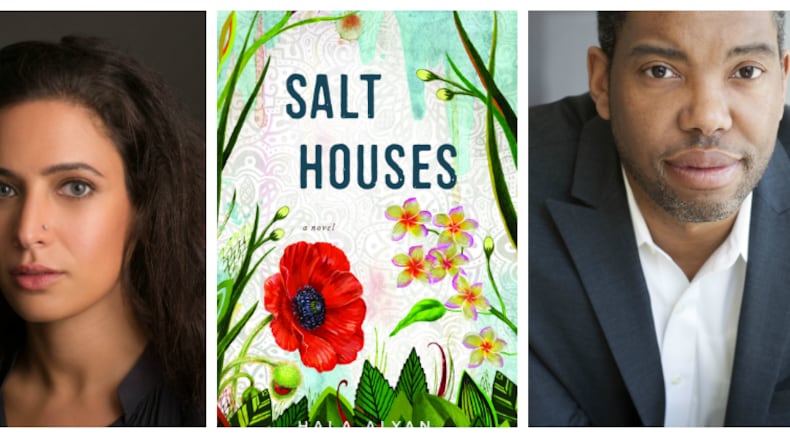FICTION
“Salt Houses” by Hala Alyan (Houghton, Mifflin, Harcourt): A heartbreaking story that follows three generations of a Palestinian family and asks us to confront the most devastating of all truths: you can’t go home again.
Credit: Beowulf Sheehan
Credit: Beowulf Sheehan
NONFICTION
“We Were Eight Years in Power” by Ta-Nehisi Coates (One World PRH): “Biting cultural and political analysis... reflects on race, Barack Obama’s presidency and its jarring aftermath, and [Coates’] own evolution as a writer in eight stunningly incisive essays.” — Kirkus Reviews (starred review)
ABOUT THE PRIZE
Established in 2006 as an offshoot of the Dayton Peace Prize, The Dayton Literary Peace Prize awards a $10,000 cash prize each year to one fiction and one nonfiction author "whose work advances peace as a solution to conflict, and leads readers to a better understanding of other cultures, peoples, religions and political points of view."
The Peace Prize committee previously announced that John Irving — the writer of a long list of classics that include "The World According to Garp," "The Cider House Rules" and "A Prayer for Owen Meany"— was named the 2018 winner of the Ambassador Richard C. Holbrooke Distinguished Achievement Award.
To qualify for the awards, books had to be published or translated into English in 2017 and address the “theme of peace on a variety of levels, such as between individuals, among families and communities, or between nations, religions or ethnic groups.”
THE RUNNERS-UP
“Pachinko,” Min Jin Lee's debut novel following four generations of a Korean-Japanese family, was named runner-up for fiction, while “Reading with Patrick,” Michelle Kuo's memoir of mentoring a teenager from one of the poorest counties in the U.S, was named the nonfiction runner-up.
FICTION
Pachinko by Min Jin Lee (Grand Central): Exiled from a homeland they never knew, four generations of a poor Korean immigrant family fight to control their destinies.
NON-FICTION
“Reading with Patrick” by Michelle Kuo (Random House): In this stirring memoir, Kuo, the child of Taiwanese immigrants, shares the story of her complicated but rewarding mentorship of Patrick Browning, a teenage student from one of the poorest counties in the U.S., and his remarkable literary and personal awakening.
FICTION FINALISTS
Exit West by Mohsin Hamid (Riverhead): An astonishingly timely love story that brilliantly imagines the forces that transform ordinary people into refugees and the impossible choices that follow.
Go, Went, Gone by Jenny Erpenbeck (New Directions): A scathing indictment of Western policy toward the European refugee crisis, but also a touching portrait of a Berlin man who finds he has more in common with his city's African refugees than he realizes.
Sing, Unburied, Sing by Jesmyn Ward (Scribner): A family makes the trip from their Gulf Coast town to the Mississippi State Penitentiary, testing the strength of their emotional bonds and the pull of a collective history.
NONFICTION FINALISTS
Enduring Vietnam by James Wright (St. Martin's Press): A recounting of the experiences of the young Americans who fought in Vietnam and of the families who mourned those who did not return.
Ghost of the Innocent Man by Benjamin Rachlin (Little, Brown): This gripping account of one man's long road to freedom provides a picture of wrongful conviction and of the opportunity for meaningful reform, forever altering how we understand our criminal justice system.
Lolas' House by M. Erdina Galang (Northwestern U. Press): The stories of sixteen Filipino "comfort women" are told in unprecedented detail in what is not only testimony and documentation, but a book of witness, of survival, and of the female body.
The Newcomers by Helen Thorpe (Scribner): Helen Thorpe's intensive, year-long reporting puts a human face on the U.S. refugee population through an intimate look at the lives of 22 teenagers enrolled in a beginner-level English Language Acquisition class at South High School in Denver, Colorado.









